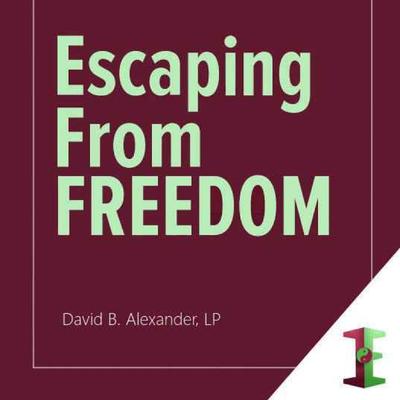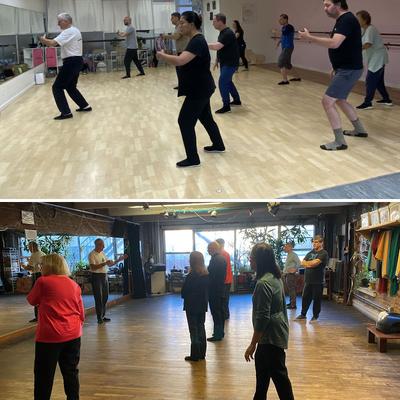Events: stimulating, interactive webinars and workshops
Scroll down for individual events; also see testimonials at page bottom

In these interactive presentations and workshops led by David B. Alexander, LP, we will study and experience importance aspects of communication and relationships.
We will also apply insightful and compassionate communication to issues or questions that the attendees bring in. If there are no issues or questions brought by attendees, the facilitator will provide sample situations for discussion.
As a psychotherapist, David has seen the value of these principles and has guided numerous couples and individuals to improve the quality of their communication and their relationships.

Zen and Buddhism are, in essence, the same topic. Zen is known for its more concise expression, while the original Buddhist teachings discuss, with great care and detail, human nature and how to transform suffering. Each has its place!
Most important is helping reduce suffering in today's world, through wisdom and compassion attuned to the realities and choices of daily life.
As a long-time practitioner of Zen, David B. Alexander presents and discusses the meaning of this ancient teaching for each of us today. Zen and Buddhism are the study of and the connection with our true selves.
Events will be appearing here this month, and taking place April through December
Other Resources
Escaping From Freedom
In times of division and loss of understanding ("How can 'those people' believe in that?"), we need to look more closely, with an open mind and heart.
This 19-page ebook builds on the insights of Erich Fromm's iconic 1941 book Escape From Freedom, with updated observations by psychoanalyst and gestalt therapist David B. Alexander.
Human awareness is dynamically created based on our inborn temperament plus our life experiences. When too many factors combine to overcome a person's hope for well-being and meaning, a voluntary giving up of freedom can occur.
Make sense of and find peace in today's world through better understanding. See the table of contents, and download your copy:
Learn Tai Chi Chuan Short Form
Classes in Long Island and
Monthly Workshops in NYC
Improve your well-being and vitality. You can do this through Tai Chi Chuan practiced with its full historical meaning and benefits.
It is a martial art and a practice benefiting well-being and physical health. Those active in music and dance performance have also reported important benefits.
The classes in Long Island are for all levels; the monthly workshops in Manhattan are for those who already know a Yang-style Short Form.
You are welcome to make contact if you have further questions.
An In-Person Presentation: Solving the Roots of Conflict
This 1/2 hour talk and discussion took place in 2024 at the Ethical Humanist Society of Long Island (www.ehsli.org). The topic is Solving the Roots of Conflict: A Nonviolent Approach. Introduction is by the Leader of EHSLI, Dr. Richard Koral.
David B. Alexander has been studying Zen since the age of 20, and Tai Chi Chuan since the age of 25, and has been teaching for over 30 years.
These are subtle and profound approaches to higher knowledge about the nature of life and one's true potential. Decades of practice and teaching have ripened this knowledge so that he values the opportunity to share and discuss his experience and information with others.
As a licensed psychotherapist, he finds value in gestalt therapy principles, nonviolent communication (an approach also known as "NVC") for couples, existential therapy, and modern psychoanalytic understanding. These are varied approaches to promoting well-being and a fulfilling life. Meditation and Tai Chi Chuan practice provide a foundation of insight and empathy, and a deeper understanding of what our life is about.
I&E Webinar and Workshop Testimonials
Other testimonials below
David's workshop on Non-violent Communication was insightful, practical and interactive. I especially appreciated the time he took to listen to and respond to people's real-life communication challenges. Practical and thoughtful workshop especially relevant in today's turbulent times.
— Terre Passero
President, Mindful Stress Management
I have attended some of David Alexander's webinars. I found them to be very informative and inspiring. He taught techniques which help people communicate respectfully, authentically and effectively. His presentations are outstanding.
— Susan Zang
I recently attended one of the online webinars hosted by this amazing psychotherapist and speaker. I was blown away by the depth of knowledge and wisdom that was shared during the session. I highly recommend attending one of his sessions in the future, you will not be disappointed!
— Andrey Volodin
I enjoyed every minute of the webinar. Your discussion of the important issues was very informative, useful and helpful. Your encouragement of us, the attendees, to participate and express our opinion was very valuable. I highly appreciate your professionalism, knowledge, experience, courtesy and patience.
The atmosphere at the meeting was very friendly and kind. I believe, no one (including myself) was uncomfortable in sharing the personal story(ies) and concerns. I further believe, that under your amazing guidance and leadership in the discussion, we all benefited from this meeting. Great job, David!
Thank you very much, and I look forward to your meetings in the future.
— Olga Ruh
Attorney
Psychotherapy Testimonials
I have been visiting regularly with David for four years now. David is an incredibly thoughtful therapist. He is both a great listener and he provides useful insights into why I am how I am, and how I can approach life more fully. His calm demeanor provide a peaceful sounding board for a wide range of topics.
— MS
These were on-going sessions and David was very helpful in assisting me in working out some important issues with my partner. He's a very good listener, but he also exercised control where it was needed. He's very good at cutting right to the point and he tries to give real solutions and then he follows up to see what worked and what didn't. He also works with compassion and humor so the whole experience was convivial, pleasant, and productive. I highly recommend him as a therapist and sympathetic human being.
— HM
David provided exactly the type of service I was looking for. I just needed to talk to someone who was willing to listen. His soft tone and gentle approach allowed our sessions to move smoothly and often times, too quickly. In person sessions felt like an afternoon in your living room, and the ability to web session meant you could actually be, in your living room. Appointments were easy and very rarely did conflicts arise. Sessions always started on time and there was never an overlap with another patient. When I felt I was in the right place to end our sessions, the reaction was nothing but positive and encouraging. The door was left open for any future needs.
— CC
I first met David through friends on social media. When I needed some one-on-one advice concerning family issues and communication, I contacted David for private sessions. Due to budgetary restrictions, I met with him for a limited time, once a week for 2 months. Even in that short time, it was a tremendous help to me, being supplied with commonsense tools for communicating effectively. We touched on Zen which I find fascinating and hope to pursue further. David has an easygoing nature that is contagious.
— JK
Tai Chi Chuan Testimonials
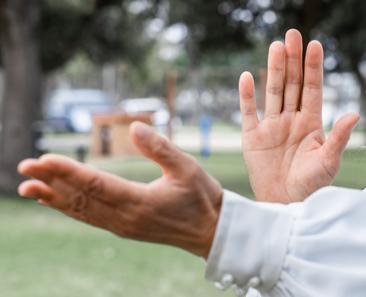

I have been attending Sunday afternoon workshops with Master David B. Alexander since last winter, meeting once a month.
Even though I have been studying T'ai-Chi Chuan for over 40 years I always feel that I learn something new in each of the classes. David provides a calm and supportive environment that is quite conducive to learning. He is a keen observer and gives clear, positive feedback.
— Master Bruce McCarter
Teacher of Tai Chi Chuan and Buddhism
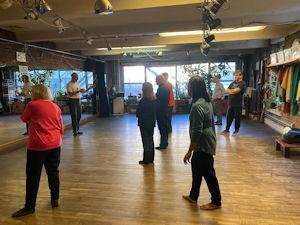

David Alexander’s workshops are an excellent opportunity to practice and improve Tai Chi skills and understanding.
A senior student of Grandmaster William C. C. Chen, David’s workshops offer a welcoming, accepting environment for beginning, intermediate, and advanced Tai Chi practitioners to learn together.
— Master Steven Asherman
Founder, Content Galaxy Tai Chi Channel
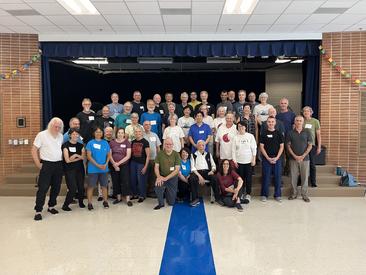
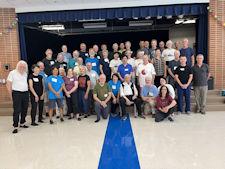
David B. Alexander is an excellent and patient teacher who clearly interprets Grandmaster William CC Chen’s method of Tai Chi Chuan. The curriculum he teaches in his workshops is thorough and sincere. I highly recommend him. Your Taichi will improve whether you are a beginner or advanced student.
— Bernard Rozenberg
Long-time Tai Chi Chuan practitioner and Push-Hands enthusiast

